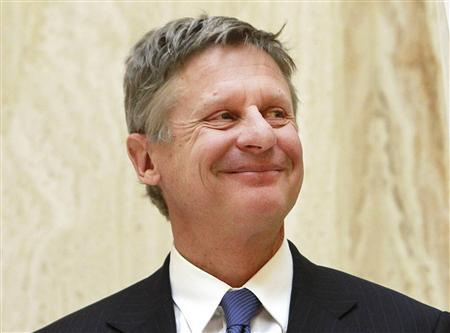The presumptive nominees of the Republican and Democratic parties, Donald Trump and Hillary Clinton, are massively unpopular with the American public. A recent Washington Post/ABC News poll showed that 57 percent of registered voters viewed Trump and Clinton unfavorably. As a result, the media has been giving significant attention to Gary Johnson, the nominee of the Libertarian Party, who has polled at 10 and 11 percent. This is significant given that in the 2012 presidential election Johnson received about 1 percent of the vote.
Libertarians tend to be misunderstood and are often referred to as “Republican lite” or “Hipster Republicans.” Libertarians are concerned with preserving the utmost liberty or freedom for the individual and typically think that big government decreases an individual’s liberty. According to the Institute for Humane Studies at George Mason University, libertarians have multiple viewpoints but “are all united by a belief in personal liberty, economic freedom, and a skepticism of government power.”
Libertarians tend to not be taken seriously because their political positions are seen as unfeasible. For instance, Johnson advocates for the elimination of the Department of Education. Johnson’s libertarian ideology stems from the belief that federal interference discourages “innovation, freedom and flexibility,” according to his website. To be fair to Johnson and libertarians, it is important to remember that every political party has politicians who advocate for unfeasible policies. For instance, it is unrealistic that Sen. Bernie Sanders could provide free tuition and “Medicare for all,” or that Trump could deport every undocumented
immigrant in the country.
Due to a significant amount of dissatisfied voters, there is speculation about the type of voters that could vote for Johnson in the general election. Although Johnson appeals to liberals on issues of civil liberties and foreign policy, he divides them on economic policy and the role of the federal government. Unlike Johnson and libertarians, liberals are for the increased role of the federal government, particularly concerning social
and economic equality. Thus, assuming Clinton gets the Democratic nomination, it is highly unlikely that Sanders’ supporters would vote for Johnson because of the two groups’ contrasting viewpoints in the role of the federal government. However, Johnson has an opportunity to gain votes from dissatisfied conservatives.
Conservatives that either identify as libertarians or are libertarian-leaning can be described as socially liberal and fiscally conservative. In 2013, the Public Religion Research Institute found that 7 percent of Americans are “consistent libertarians, and an additional 15 percent lean libertarian.” Furthermore, 45 percent of libertarians identify as Republican while 35 percent identify as independents. David Boaz of the libertarian think tank Cato Institute recently commented that Johnson is an alternative for conservatives to Trump and Clinton because of his fiscally conservative and socially liberal platform.
The future of the Republican Party remains uncertain. If the GOP hopes to survive, it must adapt to the changing demographics of the American landscape by embracing a socially liberal and fiscally conservative platform. Therefore, the GOP could win elections by appealing to libertarians, conservatives and moderates.
Leslie McNamara is a public policy graduate student specializing in health policy. She can be reached at lamcnamar@gmail.com.



